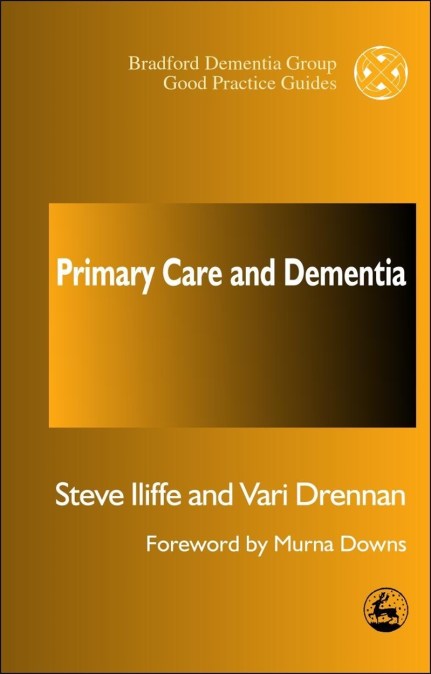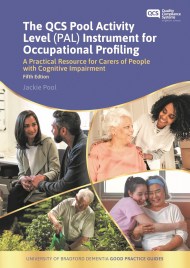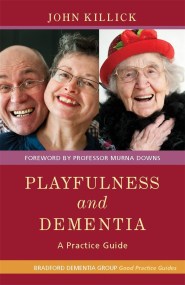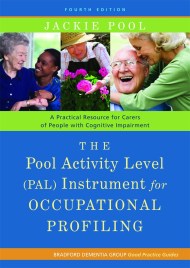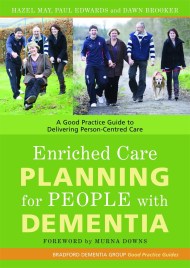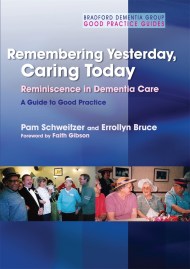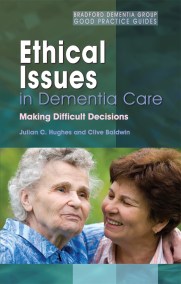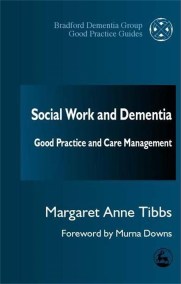This practice and training guide is written with the needs of health and social care professionals working with people with dementia in mind. Drawing together theoretical considerations and examples of good practice, the authors look at the different stages of dementia and explain how to:
* make the initial diagnosis – including guidelines for distinguishing dementia from depression;
* convey the diagnosis to the person with dementia and their family – outlining the use of cognitive tests and the role of anti-dementia drugs;
* support the client through lifestyle adjustments;
* care for end-stage dementia patients – looking for example at the choice between community or institutional care.
The book is illustrated with case studies and includes a chapter on understanding and responding to the needs of the carer – such as access to information and support – and the effect on their own health. Outlining the shared knowledge base required by health and social care practitioners, this useful and accessible work book will also facilitate inter-disciplinary and inter-agency working.
* make the initial diagnosis – including guidelines for distinguishing dementia from depression;
* convey the diagnosis to the person with dementia and their family – outlining the use of cognitive tests and the role of anti-dementia drugs;
* support the client through lifestyle adjustments;
* care for end-stage dementia patients – looking for example at the choice between community or institutional care.
The book is illustrated with case studies and includes a chapter on understanding and responding to the needs of the carer – such as access to information and support – and the effect on their own health. Outlining the shared knowledge base required by health and social care practitioners, this useful and accessible work book will also facilitate inter-disciplinary and inter-agency working.
Newsletter Signup
By clicking ‘Sign Up,’ I acknowledge that I have read and agree to Hachette Book Group’s Privacy Policy and Terms of Use
Reviews
This Good Practice Guide was created to assist primary care teams in the management of dementia and most adequately meets this objective. The guide is short and easy to read, enabling any member of the primary care team to pick it up and become well informed in a short period of time. It is also well set out so that members of primary care teams can revisit pertinent chapters or tables as needed. The authors have opted for discussion of case studies to illustrate concepts rather than present academic facts and figures. They include a wide range of cases that emphasise the real face of dementia in primary care. This approach significantly increases the guide's practical utility. There are many personal notes throughout the guide from people involved in the lives of those with dementia. These personal touches give the reader some insight into the reality of living with dementia... The text deals well with many difficult issues for primary care teams, including when and where to refer patients, how often to follow-up, disclosing a diagnosis, caring for carers, refusal of help, medications, joint work with other agencies, the basis of secondary problems, how to avoid a crisis, neglect and abuse... In sum, the guidance in this book provides a solid start from which all members of the primary care team can offer safe and effective management of dementia in the community (including residential facilities.
Primary Care and Dementia should be read widely by general practitioners, for very many of whom it shall present new ideas in accessible and relevant ways. Moreover, it will give non-medical practitioners a clear summary of the clinical issues, some good practice advice and, very importantly, some insight into the problems of dementia care as seen through the eyes of general practitioners.
The object of this text is to inform and assist those in primary care settings. It uses case-histories to develop creative problem-solving among practitioners, while outlining obstacles to good practice in dementia care in the community. It is written as a guide to action and with its pragmatic intentions and clear language it should appeal to a variety of clinicians.
The Good Practice Guide was created to assist primary care teams in the management of dementia and most adequately meets this objective. The guide is short and easy to read, enabling any member of the primary care team to pick it up and become well informaed in a short period of time. It is also well set out so that members of primary care teams can revisit pertinent chapters or tables needed. The authors have opted for discussion of case studies to illustrate concepts rather than present academic facts and figures. They include a wide range of cases that emphasise the real face of dementia in primary care. This approach significantly increase the guide's practical utility. There are many personal notes throughout the guide from people involved in the lives of those with dementia. These personal touches give the reader some insight into the reality of living with dementia.
The text deals well with many difficult issues for primary care teams, including when and where to refer patients, how often to follow-up, disclosing a diagnosis, caring for carers, refusal of help, medications, joint work with other agencies, the basics of secondary problems, how to avoid crisis, neglect and abuse... In sum, the guidance in this book provides a solid start from which all members of the primary care team can offer safe and effective management of dementia in the community (including residential facilities).
It has long been recognised that General Practitioners and the Primary Care Team are in an ideal position to observe the initial changes of dementia leading to early diagnosis... This concise clear excellent book from the Bradford Dementia Group has been written as a guide to action to help General Practitioners and their Primary Health Care Team colleagues to effectively diagnose, treat and support people with dementia and their carers... It is clear, jargon-free and reflects the group's commitment to person-centred approach to dementia. I highly recommend it and feel it would be a useful addition to the libraries, GP and allied professionals, PCT's, Social Services and medical school libraries.
